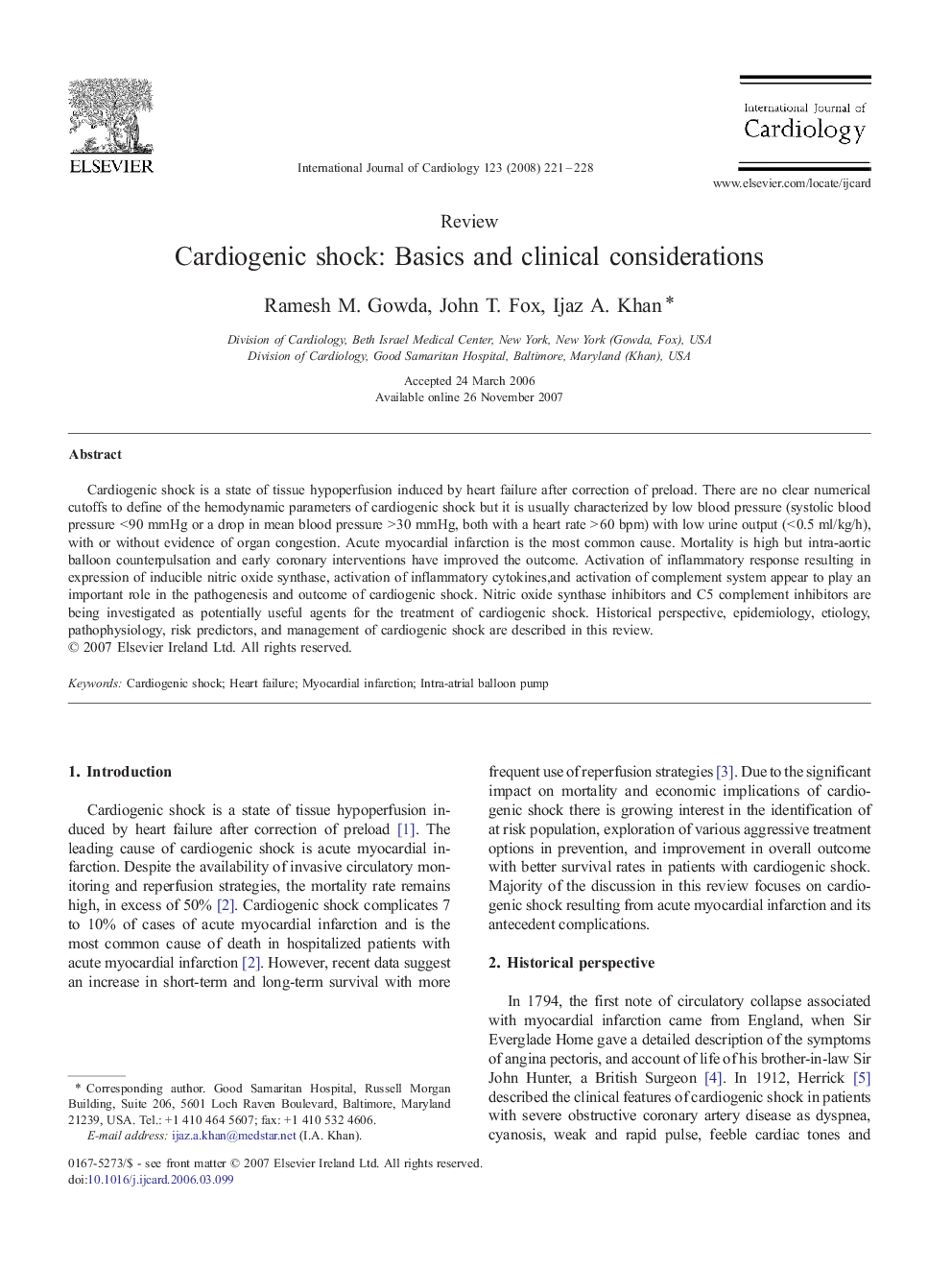| Article ID | Journal | Published Year | Pages | File Type |
|---|---|---|---|---|
| 2934858 | International Journal of Cardiology | 2008 | 8 Pages |
Cardiogenic shock is a state of tissue hypoperfusion induced by heart failure after correction of preload. There are no clear numerical cutoffs to define of the hemodynamic parameters of cardiogenic shock but it is usually characterized by low blood pressure (systolic blood pressure < 90 mmHg or a drop in mean blood pressure > 30 mmHg, both with a heart rate > 60 bpm) with low urine output (< 0.5 ml/kg/h), with or without evidence of organ congestion. Acute myocardial infarction is the most common cause. Mortality is high but intra-aortic balloon counterpulsation and early coronary interventions have improved the outcome. Activation of inflammatory response resulting in expression of inducible nitric oxide synthase, activation of inflammatory cytokines,and activation of complement system appear to play an important role in the pathogenesis and outcome of cardiogenic shock. Nitric oxide synthase inhibitors and C5 complement inhibitors are being investigated as potentially useful agents for the treatment of cardiogenic shock. Historical perspective, epidemiology, etiology, pathophysiology, risk predictors, and management of cardiogenic shock are described in this review.
